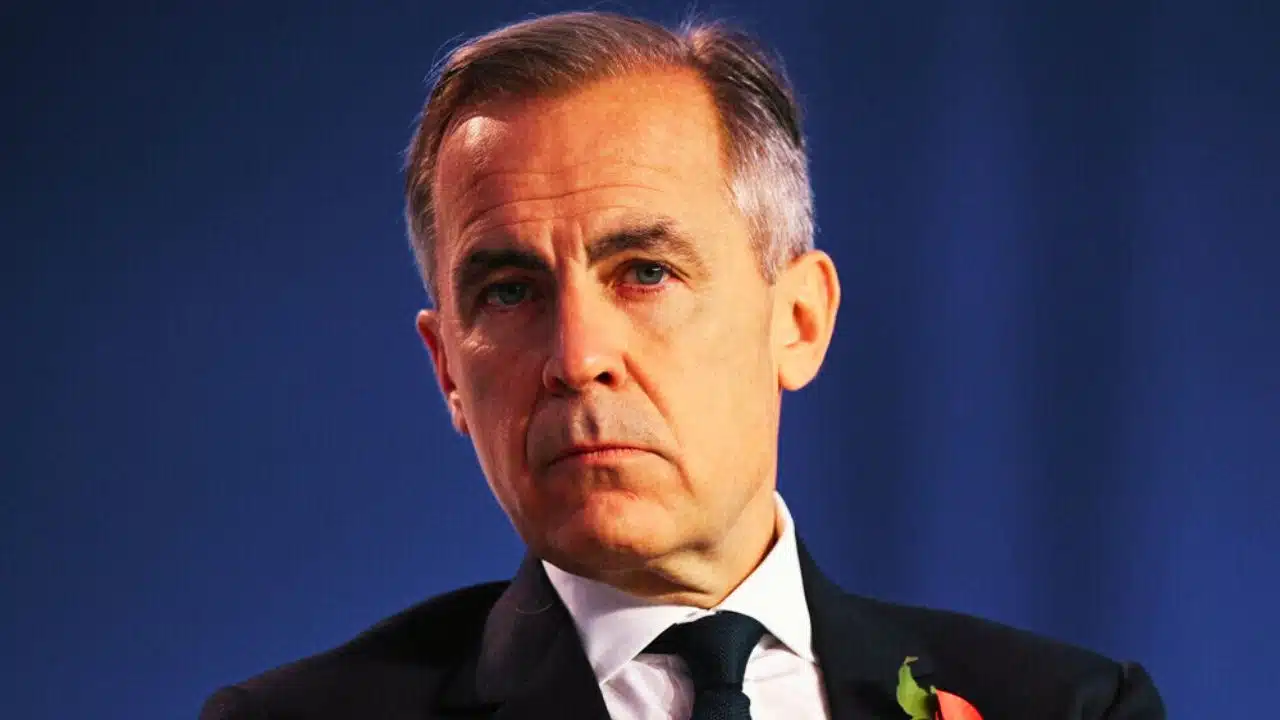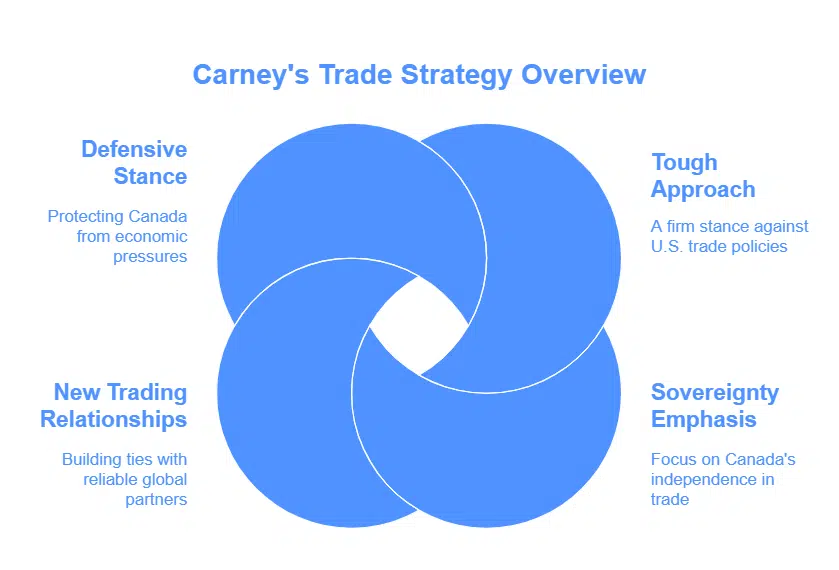Mark Carney, a well-respected economist and former central banker, has officially been elected as the leader of Canada’s Liberal Party in a highly competitive and closely watched leadership race. Carney, who previously served as the governor of both the Bank of Canada and the Bank of England, is now set to lead the Liberal Party into the upcoming federal elections. The election must be held before October 2025, but political analysts believe it could be called much sooner.
Carney’s victory comes at a pivotal moment in Canadian politics. The Liberal Party has been in power since 2015 under Justin Trudeau, who announced his decision to step down following a series of political challenges, economic concerns, and shifting public sentiment. While Carney will take over leadership of the party immediately, Trudeau will remain the country’s prime minister for an undisclosed transitional period to ensure a smooth handover. This transition period will allow Carney to familiarize himself with governmental operations and policy execution before leading the party in the general election.
U.S.-Canada Relations Under Strain
One of the most pressing issues awaiting Carney is the deteriorating relationship between Canada and the United States, which has reached its lowest point in recent years. The strain in diplomatic ties has been exacerbated by U.S. President Donald Trump’s increasingly confrontational stance toward Canada.
Trump has accused Canada of being responsible for illegal immigration into the U.S. and has threatened to impose significant economic penalties, including tariffs on Canadian imports. Furthermore, he has suggested turning Canada into the 51st state of the United States—a remark that has fueled outrage among Canadian citizens and politicians alike.
Additionally, Trump’s administration has cited concerns over the flow of fentanyl and other illegal substances across the border, using this as justification for implementing harsh trade policies. The White House argues that steep tariffs on Canadian goods are necessary to curb these issues, despite Canadian officials strongly disputing these claims.
The economic and political consequences of these tensions are already being felt across Canada. Reports indicate that fans at NHL and NBA games in Canada have been expressing their discontent by booing the U.S. national anthem. The growing animosity between the two nations is becoming a significant political issue, forcing Carney to take a firm stance as he prepares for leadership.
Carney’s Response to U.S. Tariffs and Trade Disputes
Carney has made it clear that his administration will take a tough approach in response to Trump’s trade policies. In his first remarks following his election as leader, Carney addressed the escalating tensions, emphasizing Canada’s sovereignty and economic independence. He outlined his strategy to create new trading relationships with reliable global partners while maintaining a defensive stance against U.S. economic pressures.
During his speech at the Liberal Party convention, Carney condemned Trump’s tariff plans, stating:
“He’s attacking Canadian families, workers, and businesses, and we cannot let him succeed. And we won’t.”
He went on to say that Canada would continue to implement retaliatory tariffs against the United States until the U.S. administration adopted a more respectful approach to trade negotiations.
“New threats demand new ideas and a new plan,” Carney asserted, highlighting his administration’s intent to adopt strong economic countermeasures.
Carney also used a sports analogy to rally national support, stating:
“In trade, as in hockey, Canada will win.”
His comments received a standing ovation from Liberal Party members, signaling strong internal support for his approach to foreign policy and trade relations.
Facing Off Against Conservative Leader Pierre Poilievre
As the newly elected leader of the Liberal Party, Carney is expected to face intense political opposition from the Conservative Party, led by Pierre Poilievre. Poilievre, who has often been compared to Trump for his populist rhetoric and policies, has attempted to distance himself from the U.S. leader in recent weeks. In a press conference, he declared that he is “not MAGA”, a reference to Trump’s “Make America Great Again” movement.
At a rally ahead of the Liberal leadership vote, Poilievre sharply criticized Carney’s background, portraying him as an elite economist who is out of touch with the needs of ordinary Canadians. He accused Carney of failing to protect Canada’s economic interests in the past, stating:
“Working for Trudeau, Carney made Canada weaker and poorer; working for himself, Carney made the United States richer and stronger.”
In response, Carney fired back, accusing Poilievre of having a weak strategy to handle Trump’s economic aggression.
“Donald Trump thinks he can weaken us with his plan to divide and conquer. Pierre Poilievre’s plan will leave us divided and ready to be conquered.”
Recent polling data suggests that the Conservatives still hold a lead over the Liberals, but the margin has narrowed in recent weeks, particularly as Trudeau and Carney have taken a strong stance against U.S. trade aggression. The upcoming election is expected to be a closely contested battle, with trade policy and economic strategy being key voter concerns.
Carney’s Economic and Climate Agenda
Beyond trade disputes, Carney has a broader vision for Canada’s future, focusing on economic prosperity, clean energy, and financial reforms.
With his background in finance and global economics, Carney has positioned himself as a leader who can strengthen Canada’s economy through innovation and sustainable policies. He has highlighted Canada’s vast natural resources, particularly critical minerals, as key to boosting economic growth and securing energy independence.
A major pillar of Carney’s campaign has been making Canada a global leader in clean energy. He has proposed shifting the financial burden of carbon taxes away from consumers and small businesses and placing it on large corporations instead. Under his plan, fuel taxes paid by individuals and small enterprises would be replaced with incentives that encourage businesses to reduce carbon emissions.
Carney’s leadership also brings renewed attention to Canada’s fiscal policies, as he has been a strong advocate for reducing the country’s debt burden while ensuring economic growth. His experience in handling financial crises—such as during the 2008 global recession and Brexit’s economic aftermath—has strengthened his credibility as a leader capable of managing economic uncertainty.
A Defining Moment for Canada
As Canada enters a new political era, Carney faces a series of significant challenges. His leadership will be tested as he navigates the ongoing trade war with the U.S., the domestic political divide, and the broader economic concerns facing Canadian citizens.
With Trudeau stepping aside, Carney must now rally the Liberal Party, unify the nation, and present a compelling vision for Canada’s future. His policies on economic reform, climate action, and international trade will be crucial in determining the direction of the country in the years to come.
As he prepares for the upcoming election, Carney’s ability to counter both Poilievre’s conservative messaging and Trump’s aggressive trade stance will likely define his success as a political leader. The next few months will be critical in shaping Canada’s path forward, both domestically and on the global stage.






































